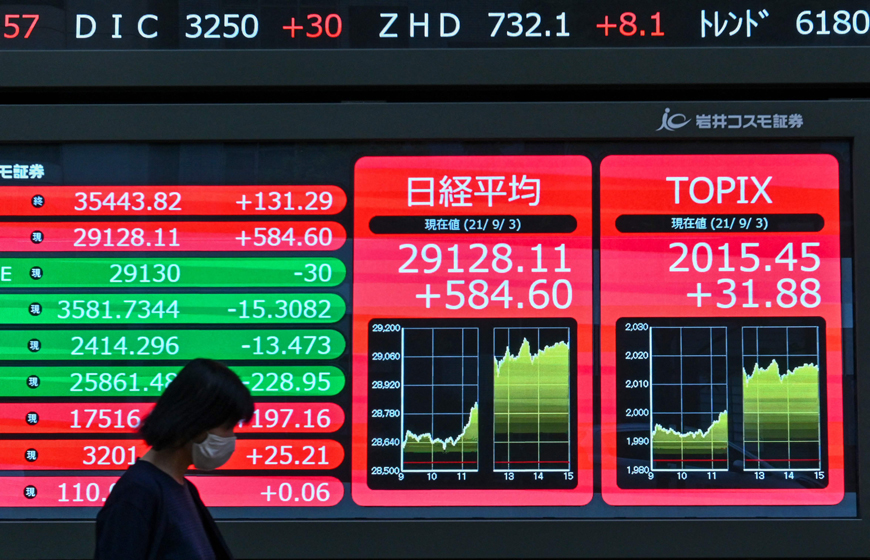TOKYO — Tokyo stocks closed higher on Monday with investors remaining buoyant over unpopular Prime Minister Yoshihide Suga's announcement that he will not stand for reelection.
The benchmark Nikkei 225 index ended up 1.83 per cent, or 531.78 points, at 29,659.89, while the broader Topix index gained 1.28 per cent, or 25.77 points, to 2,041.22.
"Gains were supported by speculation about new economic stimulus" that could be announced by the Japanese government under a new prime minister, Daiwa Securities said in a commentary.
Suga said on Friday he will not run in his ruling party's upcoming leadership vote, throwing open the race for the next premier of the world's third-largest economy.
"Last week, foreign investors returned to buy Japanese stocks, judging that the Liberal Democratic Party will avoid a drubbing in the general election, after Prime Minister Suga said he will step down," said Masayuki Kubota, chief strategist of Rakuten Securities.
The news had also prompted a positive reaction from the Tokyo market on Friday, with the Nikkei index ending more than two per cent higher.
The dollar fetched 109.81 yen in Asian trade, against 109.73 yen in New York on Friday.
Mobile phone carrier KDDI jumped 3.64 per cent to 3,669 yen and SoftBank Corp. rose 1.02 per cent to 1,535.5 yen on speculation that political pressure on them to cut phone fees would ease with the departure of Suga, who has pushed the issue.
Renewable energy company Renova climbed 15.43 per cent to 4,900 yen on prospects that green energy policy led by Suga will continue under a new leader.
Chip-testing equipment maker Advantest closed up 2.56 per cent at 10,400 yen and chip-making equipment manufacturer Tokyo Electron gained 2.43 per cent to 50,180 yen as worries over the US Federal Reserve's exit from its monetary easing eased.
The US central bank's easing policy is favourable to high-tech firms, which often take advantage of low borrowing costs.
